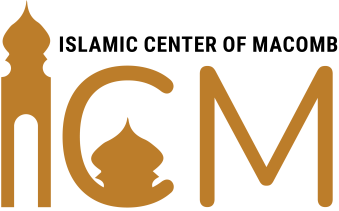Charity holds a profound place in Islam, serving as both a spiritual obligation and a social responsibility. The concept of Zakat, one of the Five Pillars of Islam, exemplifies the beauty of giving for the betterment of society. Derived from the Arabic word meaning “purification,” Zakat purifies not only the giver’s wealth but also their soul, fostering a sense of empathy and compassion. Let’s explore how this timeless principle transforms lives and contributes to societal harmony.
What is Zakat?
Zakat is a mandatory charitable contribution prescribed for every eligible Muslim. The Quran emphasizes its importance alongside prayer, reflecting its pivotal role in maintaining balance in the community. Muslims are required to give 2.5% of their accumulated wealth annually to those in need. By doing so, they fulfill their duty to Allah and contribute to the well-being of others.
The Spiritual Benefits of Zakat
- Purification of Wealth:
Zakat cleanses the giver’s earnings, ensuring that their wealth is used in ways that are pleasing to Allah. It removes greed and encourages gratitude. - Strengthening Faith:
Giving Zakat instills a sense of obedience and mindfulness towards Allah’s commandments, reinforcing the giver’s faith. - Fostering Empathy:
By supporting the underprivileged, Muslims develop a deeper understanding of their struggles, promoting a sense of unity and care within the community.
Zakat’s Impact on Society
- Poverty Alleviation:
One of the primary purposes of Zakat is to bridge the gap between the rich and the poor. It provides essential resources like food, clothing, and shelter to those who struggle to make ends meet. - Economic Balance:
Zakat helps circulate wealth within the community, reducing economic disparity and ensuring that resources reach those who need them the most. - Social Harmony:
By uplifting the less fortunate, Zakat minimizes resentment and fosters goodwill among community members. - Empowerment Through Opportunity:
Beyond immediate relief, Zakat funds are often used to provide education and skill development, enabling recipients to achieve financial independence.
Who is Eligible to Receive Zakat?
The Quran outlines eight categories of recipients for Zakat, including:
- The poor (Al-Fuqara)
- The needy (Al-Masakeen)
- Zakat collectors
- Those whose hearts need reconciliation
- Captives and slaves
- Those in debt
- Travelers in need
- Those striving in the path of Allah
These guidelines ensure that Zakat reaches those most in need, making a tangible difference in their lives.
Modern Applications of Zakat
In today’s world, Zakat plays an even more significant role in addressing global challenges. Many organizations have streamlined Zakat collection and distribution, ensuring transparency and accountability. Donations can now be made online, allowing Muslims worldwide to contribute efficiently.
Funds collected through Zakat have been used to establish hospitals, schools, and clean water initiatives, creating sustainable solutions for marginalized communities. This adaptability highlights the timeless relevance of Zakat in addressing contemporary issues.
How Zakat Transforms Lives
Consider a family struggling to access basic necessities. A portion of Zakat can provide them with immediate relief, such as food or shelter. With sustained support, they might access education or start a small business, ultimately becoming self-reliant. This ripple effect uplifts not just individuals but entire communities, creating a cycle of giving and gratitude.
Conclusion
Zakat is more than just a financial obligation; it is a profound expression of faith and humanity. By giving Zakat, Muslims contribute to a more equitable society, reduce suffering, and fulfill their spiritual duty. It is a reminder that wealth is a blessing from Allah, meant to be shared for the greater good.
In embracing the practice of Zakat, we not only transform the lives of others but also enrich our own, cultivating a world built on compassion, generosity, and faith.
